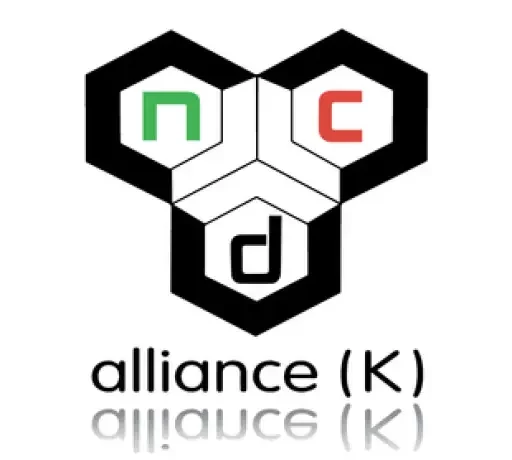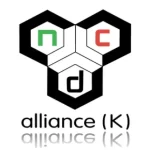Advocacy

At the global level, the Non Communicable Diseases (NCDs) have been flagged as becoming of a high concern of the public health. The increase of NCDs prevelance at global and local level is increasingly becoming a public health and developmental concern. This can be attributed to the impact it has on the social and economic sectors due to the level of healthcare needs, lost productivity and premature death. There is emerging evidence on the need to convince policy makers to prioritize NCDs interventions and allocate resources towards stemming the rising tide of NCDs, globally, regionally and locally.
OUR GOAL

To ensure continuum of care for NCD prevention, treatment, rehabilitative and palliative services are accessible, available, affordable, and acceptable
Projects
-
Increase the Priority, Attention and Budget allocation to NCDs
-
Making Non-Communicable Diseases Prevention and Control a Development Priority in East Africa
-
Strategic Media Engagement for Advocacy on Diabetes and Other NCDs
-
Accelerating NCDAK Media Engagement to Promote the Kenya Advocacy Agenda
-
Climate Change
This project with support by Danish Non-Communicable Diseases Alliance (DNCDA) being implemented between 1st May 2019 and 31st December 2020. The project empowers groups of People Living with NCDs (PLWNCDs) in six priority counties namely Kisii, Vihiga, Taita Taveta, Nyeri, Makueni, and Isiolo with skills to speak for themselves and to advocate for improved policy and health service delivery in their counties. The project supports NCDAK’s institutional strengthening to enhance capacity for delivery on its organizational mandate and supports NCD response activities in the six counties.
This support will include the establishment of County Chapters and facilitate the active participation of youth and women leaders in the advocacy agenda. This project is implemented by Kenya Diabetes Management and Information Centre (DMI Centre), Africa Sickle Cell Organization (AScO), Stowelink, African Institute for Health and Development (AIHD) who are the County chapter leads. The project responds to three objectives:
Enhance the capacity of the NCDAK and the groups of PLWNCDs (including youth) based on democratic and inclusive principles with a focus on coordination of activities in the six priority counties.
Facilitate the NCD Alliance of Kenya to collect further empirical data and create awareness about NCD symptoms and risk factors among citizens and caretakers in the six priority counties.
Improved access to strategic NCD services through increased advocacy by groups of PLWNCDs, County First Ladies (CFLs) and the youth in the 6 priority counties.
The project aims to increase attention and momentum for NCD advocacy. The program is funded by Danish Non-Communicable Diseases Alliance (DNCDA) for the period between January 2020 and December 2023. The project aim is to develop the capacity of NCDAK to be a sustainable and independent alliance with the ability to mobilize adequate and sustainable financial and human resources for NCD prevention and control and to effectively influence NCD prevention and control policies at all political levels.
Our advocacy work is underpinned by the recognition that NCD-related issues are also urgent economic and social justice issues of our generation. We work for and with People Living with NCDs (PLWNCDs) and we demand their meaningful involvement. Under this component, the program has the following objectives:
To ensure implementation of effective NCD prevention and control policies with a multi-sectoral approach including increased national budgetary allocations.
To strengthen involvement of PLWNCDs (especially youth) and their caregivers in the formulation, implementation, and review of all NCD policies, legislation, strategies, guidelines and activities/PLWNCDs empowerment.
To enhance capacity of the regional and individual East African NCD Alliances based on democratic and inclusive principles, with a focus on national alliances capacity to coordinate activities at branch level and attract funding to diversify their funding base.
To build capacity of national alliances and have the ability in collecting and processing further empirical data and utilize these to create awareness about NCD symptoms and risk factors among citizens and decision makers.
NCDAK in partnership with DNCDA developed a two-year project, as a pilot initiative, that would create awareness among the communities in Mukuru informal settlements in Kenya on the link between climate change and NCDs. The climate change crisis is a health crisis. Elevating health in the climate debate is listed first In the World Health Organization’s list of urgent health challenges for the decade leading up to the deadline of the Sustainable Development Goals in 2030. Concomitantly, non-communicable diseases (NCDs) constitute the fastest growing global health burden. Our activities are among the first local initiatives to raise awareness and develop sustainable solutions locally. The awareness and advocacy component of our activities takes a system-wide multi-sectoral perspective that goes beyond the mainly health sector related focus of the current program. The local adaption/resilience strategies suggested proposed activities (air pollution reduction, waste management, food security) that create climate resilience capacity beyond health considerations. The objectives include:
To increase recognition of the impact of climate change on health and NCDs to advocate for the adoption of climate change mitigation and adaptation strategies at all levels of policy making.
To strengthen evidence-base on the link between climate change and NCDs
To improve local climate change resilience and adaption while mitigating climate related NCDs.
The project aims to increase media awareness and government action on NCDs in East Africa through strategic media engagement for advocacy on diabetes and other NCDs. The project is funded by the World Diabetes Foundation and implemented by the member alliances of NCD Alliance East Africa (EANCDA): Burundi NCD Alliance, NCD Alliance of Kenya, Rwanda NCD Alliance, Tanzania NCD Alliance, and Zanzibar NCD Alliance. The project focuses on the following objectives:
Establish partnership with at least four media houses (TV, print, radio), in each East African country, which have demonstrated a commitment to provide regular, accurate information on NCDs in collaboration with member NCD Alliances
Increase capacity and interest of the media to provide more coverage on NCDs and the capacity of NCD practitioners and advocates to communicate effectively to decision-makers and the public using media.
Increase by at least 30% the volume of media coverage on NCDs through a collaborative process of developing and disseminating public-interest evidence-based content and compelling humanistic stories; and use of diversified channels of communication.
The project aims to contribute to the NCD response in Kenya by accelerating media engagement to promote the Kenya advocacy agenda. It is anticipated that focus on media engagement on NCDs will contribute to enhancing the NCD response by empowering communities with information to prevent and better manage NCD and reduce stigma associated with NCDs in the community. The project focuses on the following objectives:
Enhance NCDAK’s media engagement efforts
Increase media coverage of NCDs in Kenya
Promote Kenya advocacy agenda via NCD champions.

